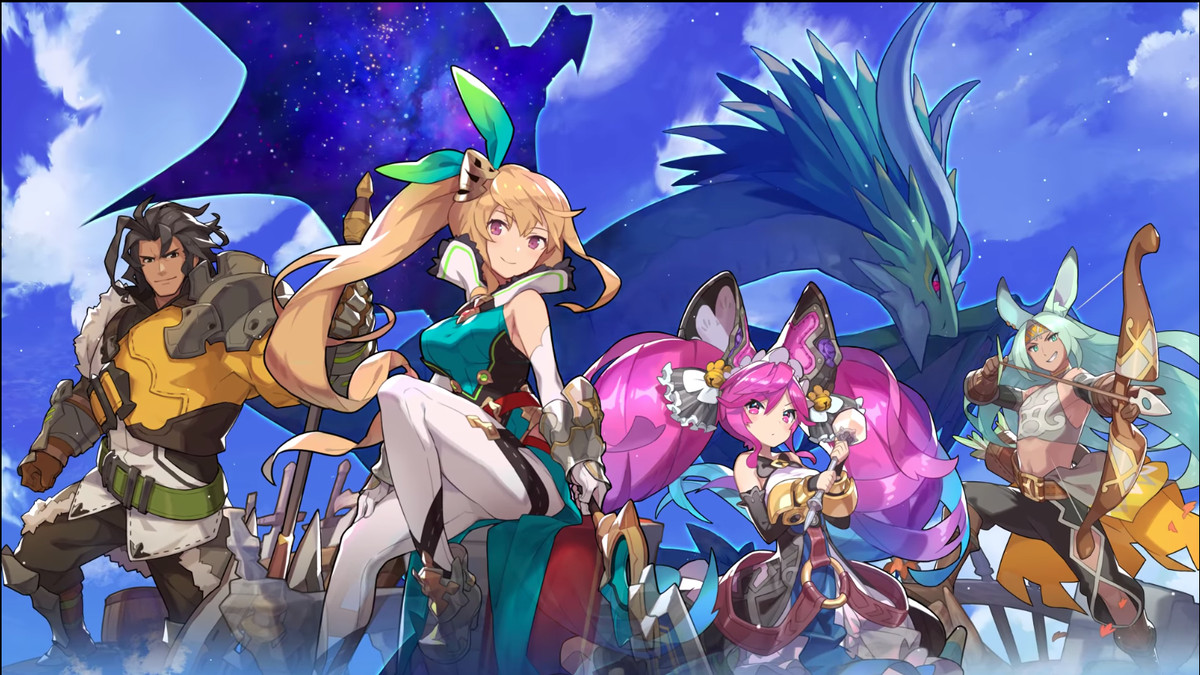The failure of the Wii U forced Nintendo to look elsewhere: to mobile
While Nintendo is known for its mobile consoles – Game Boy, DS, Nintendo Switch – it has never really been known as a mobile games developer, that is, a studio that makes games for your phone. But that doesn’t mean Nintendo not so done. In fact, you can count the number of Nintendo mobile games on two hands. Since 2016, Nintendo has released eight eligible games, a strategy tied to the Wii U’s failure.
The successor to the Wii, Nintendo’s Wii U, was released in 2012. Although it replicated some of the Wii’s features, improved its online functionality, and added the unique GamePad controller, the console was hardly a success. Nintendo has sold just over 13 million Wii U consoles, making it one of the company’s worst-selling systems. Nintendo was underperforming financially because of the Wii U – and its new mobile gaming strategy was a way to mitigate that failure. according to Bloomberg. Former Nintendo president and CEO Satoru Iwata, who led the company from 2002 until his death in 2015, told Japanese newspaper Nikkei in 2012 that mobile games were “absolutely not” an option.
“If we did this, Nintendo would no longer be Nintendo,” he said. “Having a hardware development team in-house is a great strength. It is management’s duty to leverage these strengths. It’s probably the right decision in the sense that we would make a profit the moment we released games on smartphones. However, I believe that my responsibility is not to short-term profits, but to Nintendo’s competitiveness in the medium and long term.”
Image: DeNA/Nintendo
But in 2015 Iwata told Time that Nintendo was able to develop a strategy that worked for the company: “More specifically, we will not only port games developed for our dedicated gaming systems to smart devices as they are – we will develop brand new software that perfectly matches the playing style and control mechanisms of smart devices,” he said.
Iwata continued: “We are at the point where we can say that we can develop and exploit software that will ultimately not harm the value of Nintendo’s intellectual property, but rather become an opportunity for a large number of people. of people around the world who own smart devices – but have no interest in dedicated video game hardware – to be interested in Nintendo IP and ultimately become fans of our dedicated gaming systems.
Nintendo announced its partnership with DeNA, the Japanese mobile games company that created it, in 2015 Marvel: Hero War And Final Fantasy record holder, and much more. Together, the companies released five mobile games: Miitomo And Super Mario Run in 2016, Fire Emblem Heroes And Animal Crossing: Pocket Camp in 2017, and Mario Kart tour in 2019. Super Mario Run was the first game to be that supposed to be a big hit – I mean Mario on mobile – but it is did not live up to its potential. Fire Emblem Heroes saw much greater financial success despite a smaller installation base, Newzoo said. Super Mario Run earned $7 million in 2018 with more than 200 million downloads Fire Emblem Heroes earned $200 million in 2018 with just 10 million downloads, according to Newzoo data.
After Zakkamp in 2017, Nintendo released Dragalia lost in 2018, developed by Cygames; it generated over $100 million in revenue for Nintendo, making it one of Nintendo’s more successful mobile games, according to Sensortoren. Dr. Mario World came next in 2019, developed by Nintendo, Line Corporation and NHM Entertainment; the match-3 game didn’t really get off the ground. Mario Kart tour was released in 2019, developed by DeNA, followed by Pikmin Blooma collaboration with Niantic, in 2021.
In 2020, Nintendo began to rethink its mobile strategy. What Nintendo President Shuntaro Furukawa once said would bring Nintendo $1 billion in revenue – releasing two to three mobile games a year – has not worked. The Nintendo Switch, released in 2017, saw huge success – and Nintendo moved away from mobile after its games failed to meet financial expectations. Bloomberg reports this in 2020, according to data from Sensor Tower, which likes Nintendo’s mobile games Super Mario Run And Dragalia lost, absolutely “plummeted” in numbers, while other mobile games saw success due to COVID-19 pandemic lockdown restrictions, which caused people to play more games. That’s when Nintendo’s Animal Crossing: New Horizons came out on Switch and pushed Nintendo’s stock to “a 12-year high,” according to Bloomberg.
By 2023, Nintendo was ready to officially move away from Mario on mobile: “Mobile apps won’t be the main path for future Mario games,” says Nintendo game director Shigeru Miyamoto told Variety. It’s not necessarily a surprise: Nintendo unceremoniously withdrew Dr. Mario World in 2021, taken thereafter Dragalia lost offline in 2022. Miitomoa social networking app, is also no longer supported by Nintendo.

Image: Cygames/Nintendo
The outlier, of course, is The Pokémon Company’s success on mobile; Nintendo owns part of The Pokémon Company, but it is completely separate from Nintendo. The Pokémon Company has a dozen mobile Pokémon games – most notable Pokémon Go – who have achieved various successes; another, Pokémon trading card game Pocketis expected soon.
But Nintendo, at least publicly, doesn’t seem too upset about its problems with mobile financial success. By 2022, the company told Axios which are mobile games and apps that help Nintendo characters and franchises reach people who don’t have access to a Nintendo Switch. “While we feel the importance of generating revenue and profit through our mobile business, our core strategy at the company is to expand the number of people who have access to Nintendo (intellectual property),” the Nintendo spokesperson said.
Nintendo hasn’t announced any mobile games as it enters the next era of consoles, and it looks like that will remain the case – unless the company gets an opportunity that makes absolute sense.
